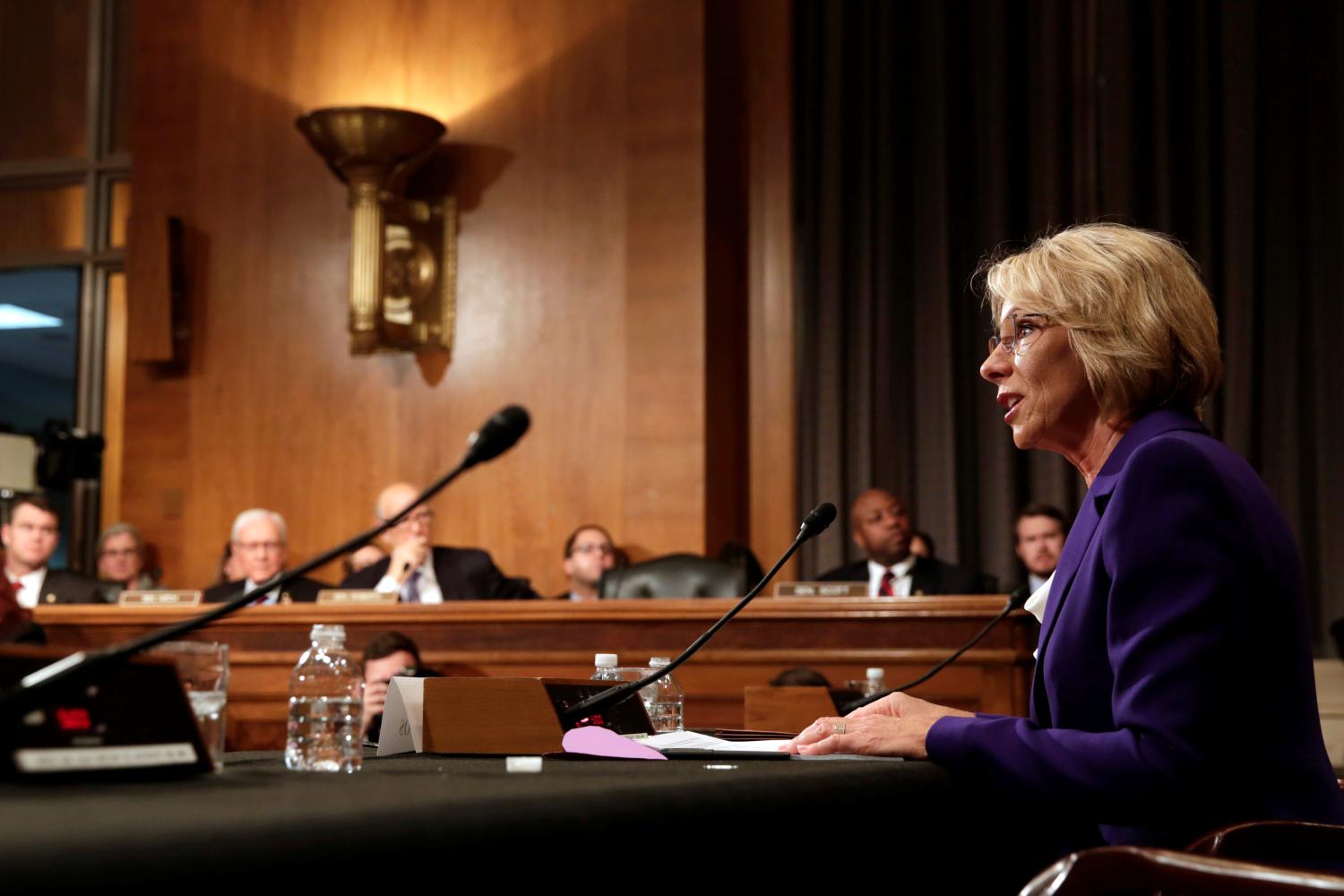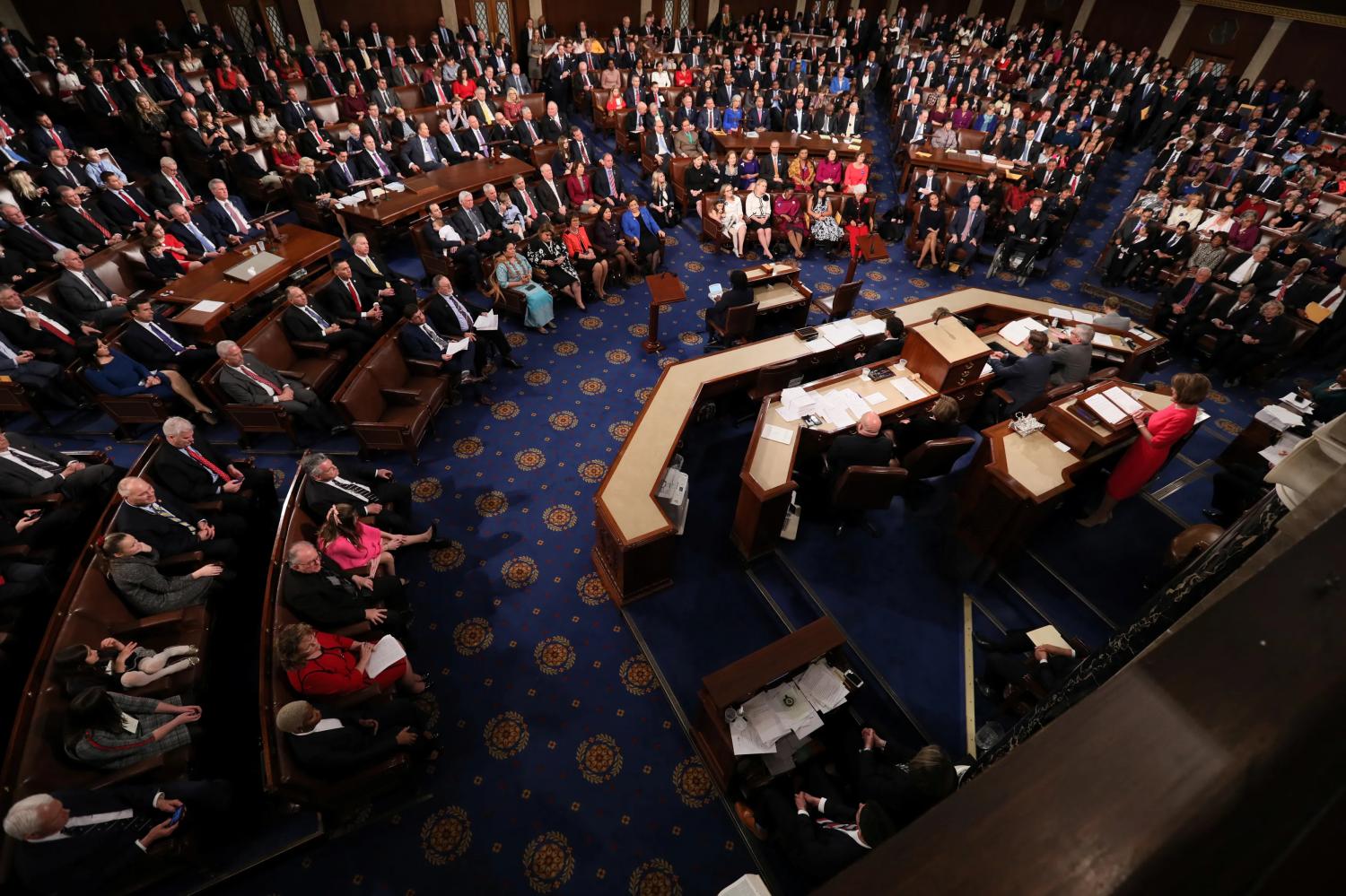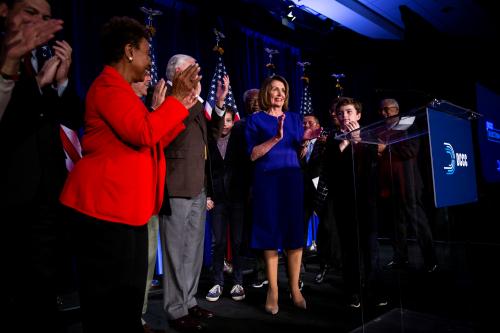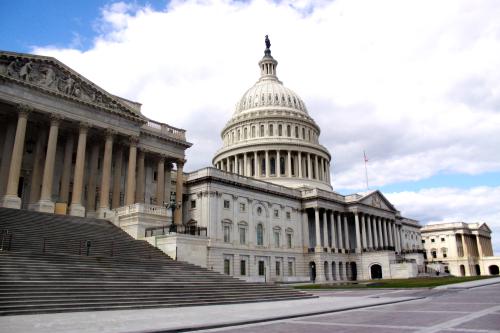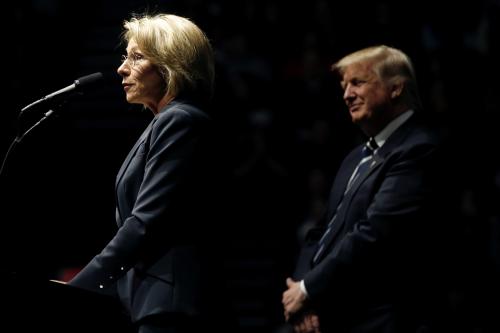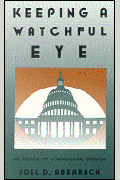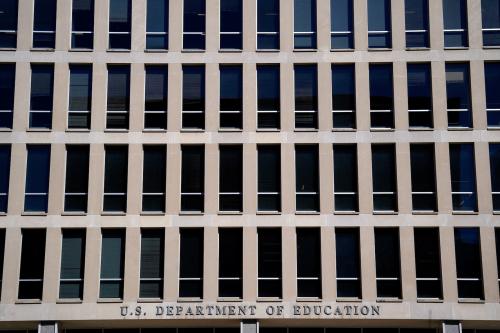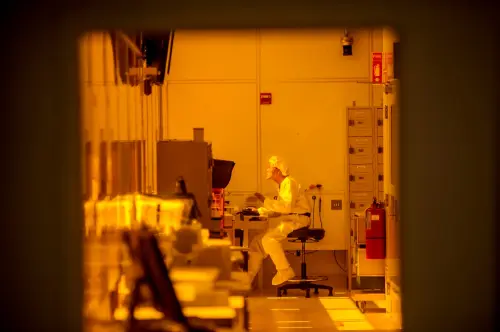 In the past two years, with Secretary of Education Betsy DeVos’ leadership, the department has taken a number of steps to roll back federal regulations, in lockstep with the Trump administration’s broader playbook. As a result, during the midterm elections, Ms. DeVos was an easy and often-invoked target for Democrats. Although Democrats took control of the House, with the Senate and White House still under Republican control, it seems unlikely that there will be much in the way of legislation that undermines or changes policies implemented by DeVos.
In the past two years, with Secretary of Education Betsy DeVos’ leadership, the department has taken a number of steps to roll back federal regulations, in lockstep with the Trump administration’s broader playbook. As a result, during the midterm elections, Ms. DeVos was an easy and often-invoked target for Democrats. Although Democrats took control of the House, with the Senate and White House still under Republican control, it seems unlikely that there will be much in the way of legislation that undermines or changes policies implemented by DeVos.
Nonetheless, with control of committee chairs in the House, Democrats could make life difficult for DeVos starting in 2019. Indeed, several incoming chairs have signaled plans to use their oversight authority to examine DeVos’ policies. What might we see in the way of congressional oversight of education during the 116th Congress?
To begin, it’s important to underscore what oversight authority entails. Committee chairs in the House, in general, have the authority to convene public oversight hearings, ask members of the current administration (among others) to provide public testimony, and subpoena related documents. Highly publicized hearings could build pressure on DeVos to change course or to moderate highly contentious proposals. One example of a policy under consideration that Democrats may target is the department’s proposed Title IX rule, which would create formal requirements for how colleges and universities handle sexual harassment and assault claims. Incoming chair of the House Education and Workforce Committee, Rep. Bobby Scott (Va.), referred to the proposed rule as a “damaging setback.”
In addition to hearings, committees can send letters to members of the administration recommending a course of action or requesting information. In the 116th Congress, with Democrats taking on the chairperson roles in House committees and subcommittees, committee letters may be more likely to contain critiques, requests for information, and/or recommendations for a change in direction than during the previous Congress. For example, a fall 2018 letter from then-chairwoman of the House Education and Workforce Committee, Rep. Virginia Foxx (R-N.C.), and then-chairman of the Subcommittee on Higher Education and Workforce Development, Rep. Brett Guthrie (R-Ky.), praised the Department of Education’s proposed rule to revise the process for repaying defrauded borrowers as “a responsible step forward.” In contrast, Rep. Scott issued a statement in summer 2018 describing the DeVos regulatory agenda, including plans to rewrite the borrower defense rule, as “ominous.” Democrats may also use these letters to set the agenda in a manner consistent with their party’s policy goals.
It’s also important to note limitations to oversight authority. Committee chairs, via hearings or other means, cannot formally compel Secretary DeVos (or other members of the administration) to implement policy changes. Of course, Congress can create or revise policies through legislation or threaten to withhold or disrupt funding, but with Republicans in control of the Senate and President Trump in the White House, these are not reliable avenues for House Democrats to check Secretary DeVos’ authority.
Nonetheless, we should expect House Democrats to exercise their oversight authority in the hopes of pressuring DeVos to change course. At the very least, with House members’ re-election never far on the horizon, Democrats may see value in going on the record to oppose DeVos via hearings, letters, or other means, a strategy the political scientist David Mayhew refers to as “position taking.”
Oversight hearings can also be a valuable agenda-setting mechanism whereby members of Congress bring issues to the foreground. Publicizing policy decisions and related debates may be particularly helpful in the context of education policy, considering that education does not typically rank high among the issues Americans are most concerned about (in a November 2018 Gallup survey, only 3 percent of respondents indicated that “education” is the most important problem the country faces). Public attention to an issue may be further amplified if the focus of a hearing converges with highly salient concerns or movements. For example, a hearing on the proposed Title IX rule may draw a great deal of attention in the context of the #metoo movement. Hearings related to oversight of the for-profit sector may dovetail with larger concerns about the cost of college and burdensome student debt, with broader implications for the health of the economy and strength of the workforce.
At the same time, pursuing oversight may draw critiques from Republicans of chasing political foes rather than legislating. In their approach to oversight, Democrats with an eye on 2020 may attempt a delicate balancing act that allows them to set the agenda, build pressure on DeVos, and score political points without playing into this narrative.
Already, incoming chairs of several committees have indicated an interest in oversight of DeVos’ policies. Rep. Scott has indicated his intent to examine whether the Department of Education is fulfilling its obligations to protect students’ civil rights. Under his leadership, the House Education and the Workforce committee may examine whether state plans to implement the Every Student Succeeds Act, No Child Left Behind’s successor, comply with the law; civil rights groups have argued that some of the plans do not live up to “core equity provisions of the law.” Scott may also look into the recent rollback of the Obama administration’s guidance regarding school discipline policies that disproportionally affect students of color.
In addition, DeVos’ rollback of regulations related to the for-profit college industry are of concern to a number of incoming Democratic committee and subcommittee chairs, including Scott, Rep. Mark Takano (D-Calif. [Veterans’ Affairs Committee]), Rep. Rosa DeLauro (D-Conn. [Labor, Health and Human Services, and Education Subcommittee on Appropriations]), and Rep. Maxine Waters (D-Calif. [Financial Services Committee]). In this context, it seems likely that DeVos and/or members of her department will be asked to testify about the proposal to rescind Obama-era gainful employment regulations as well as other policies related to student debt and the for-profit industry.
Significant pressure via oversight does not necessarily mean that DeVos will change course on any of these items. The Secretary has marched forward with implementing her and President Trump’s deregulatory agenda despite significant pushback thus far. Whether an increase in formal oversight pressures her to change direction remains to be seen, especially if the president continues to support her efforts publicly—praise that will firm up her support in the Senate. Nonetheless, with new authority in the House, Democrats will almost certainly try.
The Brookings Institution is committed to quality, independence, and impact.
We are supported by a diverse array of funders. In line with our values and policies, each Brookings publication represents the sole views of its author(s).

